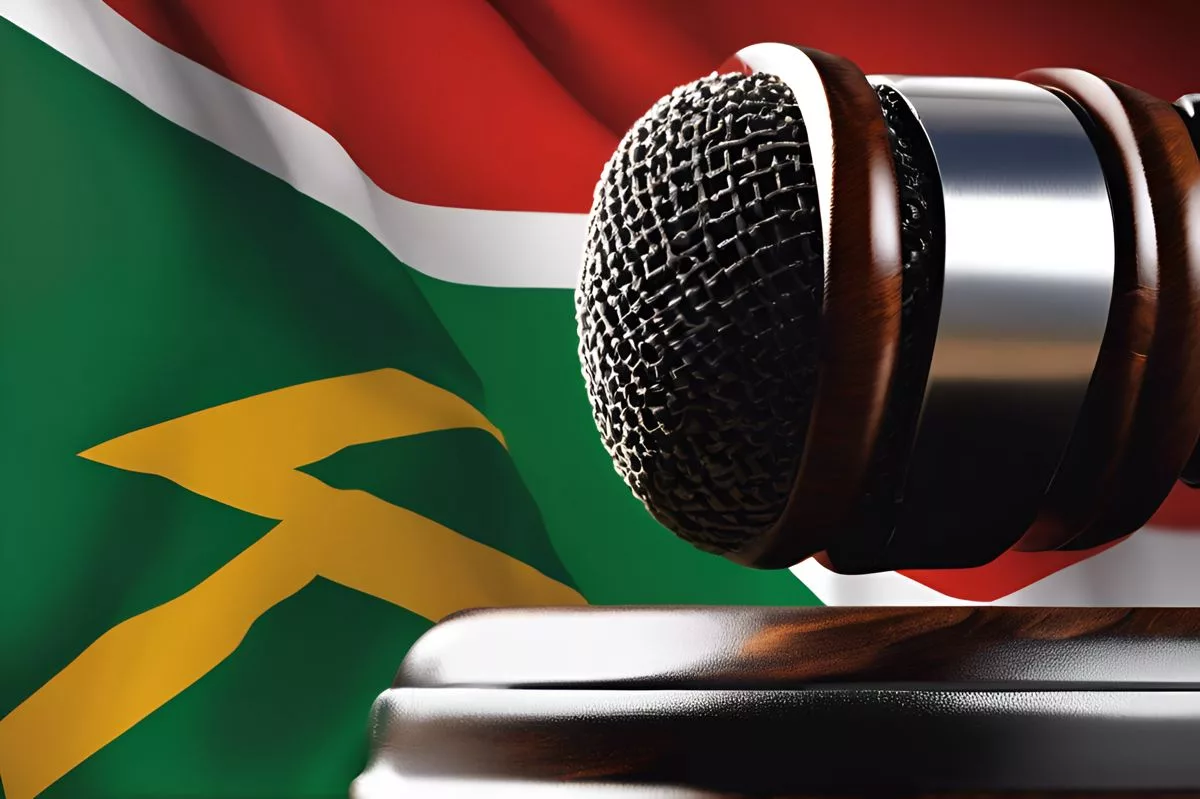Minister Thembi Nkadimeng emphasized the role of ethical leadership in creating a fair and inclusive society, supplying citizens with essential services, and opposing corruption in service provision. She also provided updates on anti-corruption efforts and the National Anti-Corruption Strategy, which aims to enforce zero tolerance towards corruption and nurture an ethical and accountable state.
Minister Thembi Nkadimeng emphasizes the importance of ethical leadership in local governance, stating that it forms the backbone of a fair and inclusive society. She advocates for supplying citizens with essential services while opposing any corruption in service provision. The minister also highlights the significant strides made in anti-corruption efforts and the National Anti-Corruption Strategy, which aims to enforce zero tolerance towards corruption and nurture an ethical and accountable state.
Section 1: Embodying Ethical Leadership in the Political Landscape
Thembi Nkadimeng’s name is a prominent feature in the narrative of South African politics, renowned for her embodiment of ethical leadership. As a distinguished personality in local governance, the minister has established a significant presence, demonstrating exceptional leadership, promoting a value system centered on honesty, responsibility, and public service. Her recent keynote at the Local Government Ethical Leadership Summit, an event to kick off Human Rights Month, provides a profound insight into her leadership tenets and dedication to the moral administration of local government.
Minister Nkadimeng, along with other esteemed attendees, including the Deputy Minister of Cooperative Governance and Traditional Affairs, the Ethics Institute’s CEO, and delegates from the public and private sectors, initiated a dialogue that redefined ethical leadership as a key aspect of effective local governance.
During her speech, the minister paid homage to South Africa’s progress from its oppressive history of apartheid. She recognized the current democratic system, with its focus on human rights, as a tribute to the courageous individuals who stood against tyranny and unfairness. The powerful narrative of Tintswalo, a symbolic offspring of democracy, profiting from the human rights advancements over the past three decades, portrays a moving image of South Africa’s evolution.
Section 2: Placing Ethical Leadership at the Heart of Justice and Inclusivity
Minister Nkadimeng stressed that ethical leadership forms the backbone of a fair and inclusive society, especially at the local government level. She emphasized the vital role of supplying citizens with essential services and how ethical leadership facilitates this. Viewing local governance through the prism of ethical leadership, she delved into the complexities of Local Economic Development (LED), underlining its function in driving sustainable growth and boosting local enterprises. She also expressed a solid opposition to any corruption in service provision.
Despite substantial advancements in human rights and access to basic amenities over the past three decades, the Minister candidly confessed that the path towards a genuinely fair and equitable society remains incomplete. She drew attention to the ongoing issues of inequality, systemic injustices, and widespread poverty that continue to ostracize millions of South Africans.
The Minister’s probing questions about the status of service delivery in municipalities, and whether the leaders and stakeholders are satisfied with the current predicament, served as an urgent summons for reflection and action. This aligns with the minister’s dedication to public service adhering to the high professional ethics stipulated by the Constitution of the Republic of South Africa.
Section 3: Updates on Anti-Corruption Efforts and National Strategy
Minister Nkadimeng provided a concise yet powerful update on the Local Government Ethical Leadership Initiative (LGELI) and the Local Government Anti-Corruption Forum (LGACF). She highlighted the significant strides made since their inception in September 2022 and praised the collaborative efforts between state and non-state participants in fighting corruption and promoting ethical behavior.
Her speech also illuminated details on the National Anti-Corruption Strategy 2020–2030. The strategy aims to nurture an ethical and accountable state, empower citizens to hold the powerful accountable, and enforce zero tolerance towards corruption. Recognizing the systemic nature of corruption, she called for a multi-disciplinary approach to combat it. In this regard, she presented ethical leadership as the pivotal missing link.
The Minister also touched on critical issues such as consequence management and accountability, safeguarding whistleblowers and witnesses, the significance of leadership, a database of dismissed officials, collaboration with the National School of Government and other crucial entities, communication and awareness, ethics infrastructure, and amendments to the Municipal Structures Act. These components collectively formulate a robust strategy aimed at eradicating unethical practices and corruption while fostering good governance at the local government level.
Section 4: Ethical Leadership as a Beacon of Hope for the Future
Minister Thembi Nkadimeng’s speech exemplifies her philosophy of ethical leadership, a quality crucial to the mission for a fair and inclusive society. By echoing Nelson Mandela’s words, “Those who conduct themselves with morality, integrity and consistency need not fear the forces of inhumanity and cruelty”, she reaffirms her commitment to these principles, indicating a promising future for South Africa. Her leadership stands as a beacon of optimism, showcasing the kind of leadership critical to the development and prosperity of local governments in South Africa, and indeed, the world.
1. What is ethical leadership, and why is it crucial in local governance according to Minister Thembi Nkadimeng?
Minister Thembi Nkadimeng defines ethical leadership as a value system centered on honesty, responsibility, and public service, essential for creating a fair and inclusive society and supplying citizens with essential services. She emphasizes the role of ethical leadership in opposing corruption in service provision, driving sustainable growth, and boosting local enterprises.
2. What does Minister Thembi Nkadimeng say about the current status of service delivery in municipalities?
Minister Thembi Nkadimeng’s speech probes critical questions about the status of service delivery in municipalities and whether the leaders and stakeholders are satisfied with the current predicament. Her questions serve as an urgent summons for reflection and action, aligning with her dedication to public service adhering to the high professional ethics stipulated by the Constitution of the Republic of South Africa.
3. What updates did Minister Thembi Nkadimeng provide on the Local Government Ethical Leadership Initiative (LGELI) and the Local Government Anti-Corruption Forum (LGACF)?
Minister Thembi Nkadimeng provided an update on the significant strides made since the inception of the Local Government Ethical Leadership Initiative (LGELI) and the Local Government Anti-Corruption Forum (LGACF) in September 2022. She praised the collaborative efforts between state and non-state participants in fighting corruption and promoting ethical behavior.
4. What is the National Anti-Corruption Strategy, and what are its goals?
The National Anti-Corruption Strategy aims to nurture an ethical and accountable state, empower citizens to hold the powerful accountable, and enforce zero tolerance towards corruption. The strategy recognizes the systemic nature of corruption and calls for a multi-disciplinary approach to combat it.
5. What critical issues did Minister Thembi Nkadimeng touch on during her speech?
Minister Thembi Nkadimeng touched on critical issues such as consequence management and accountability, safeguarding whistleblowers and witnesses, the significance of leadership, a database of dismissed officials, collaboration with the National School of Government and other crucial entities, communication and awareness, ethics infrastructure, and amendments to the Municipal Structures Act.
6. What does Minister Thembi Nkadimeng’s philosophy of ethical leadership mean for the future of local governments in South Africa?
Minister Thembi Nkadimeng’s philosophy of ethical leadership represents a promising future for South Africa, showcasing the kind of leadership critical to the development and prosperity of local governments in the country and the world. Her leadership stands as a beacon of optimism, echoing Nelson Mandela’s words, “Those who conduct themselves with morality, integrity and consistency need not fear the forces of inhumanity and cruelty.”












